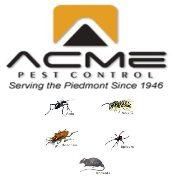
As a homeowner, you know there are many maintenance and safety issues to keep your eye on. However, one that is easily forgotten is radon. The EPA recommends radon testing periodically or when your living conditions change, so read on to learn why this is an essential part of homeownership and how to keep your family safe.
What Is Radon?
Radon is a gas that comes from the ground naturally in many areas. Unfortunately, it can seep into homes through the foundation or basement, creating high levels when it's contained indoors. The gas is colorless, odorless, and tasteless, so you won't be able to tell if it's an issue in your home without radon testing.
Why Is It Dangerous?
 Radon is a radioactive gas that's produced by the breakdown of uranium, thorium, and radium underground and underwater. Breathing it in increases your risk of lung cancer over time, which is why the EPA attributes about 21,000 deaths in America each year to prolonged exposure.
Radon is a radioactive gas that's produced by the breakdown of uranium, thorium, and radium underground and underwater. Breathing it in increases your risk of lung cancer over time, which is why the EPA attributes about 21,000 deaths in America each year to prolonged exposure.
What Can You Do About It?
The most basic step you should take after radon testing is to seal foundation cracks to prevent the gas from seeping inside. You can also install specially designed ventilation systems to move the gas outside and let it disperse, or create a gas-permeable layer under your foundation to allow the gas to move past your home instead of into it. You should also continue with regular radon testing to check that these changes have worked and that the radon levels stay safe for your family.
In addition to pest removal services, Acme Pest Control Co in Concord, NC, offers professional radon testing. With over 70 years of experience serving Cabarrus County, they work with your schedule and budget to ensure your home is safe, clean, and comfortable. Call (704) 786-4166 to get started today, or visit them online to learn more about their services.
About the Business
Have a question? Ask the experts!
Send your question

